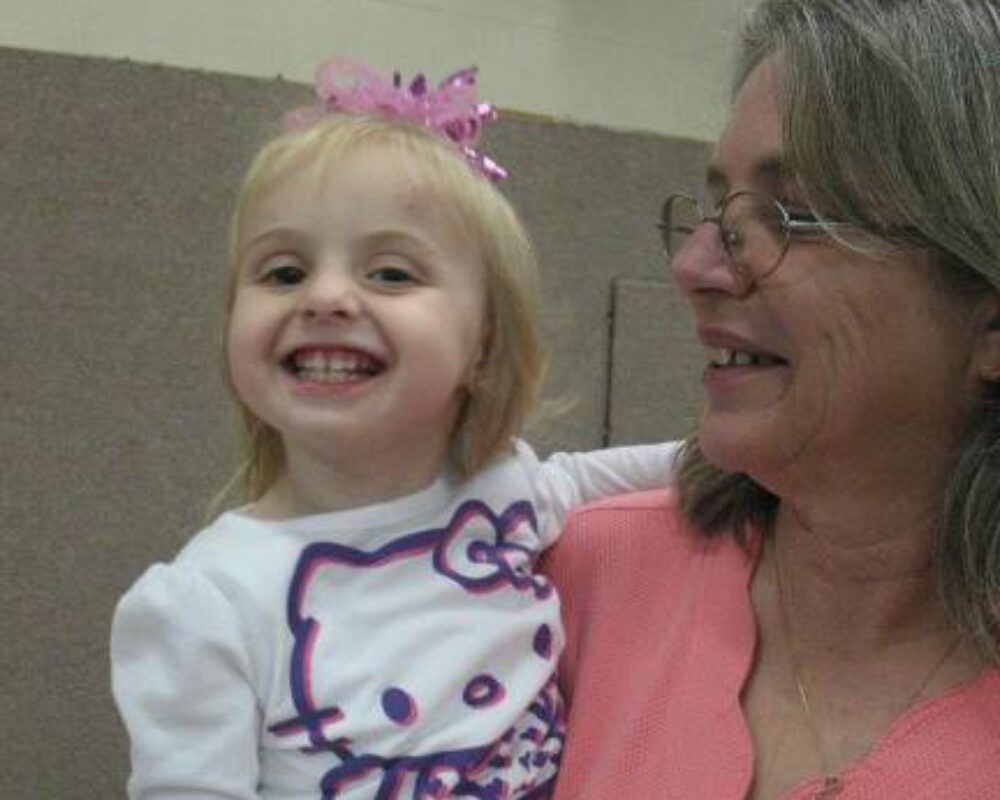
Carol Hinch knew something was wrong. She had recently been awarded custody of her granddaughter, Mia, who had been exposed to opioids in the womb. Now 7 months old, Mia wasn’t babbling or cooing like other babies. She couldn’t eat developmentally appropriate foods.
“I had been raising kids for almost 50 years, and I got them all to spoon feed cereal,” Carol says. “But with Mia, it didn’t work.”
Carol sought advice from her home visitor, Jenny, who met with them weekly to deliver the Parents as Teachers curriculum. Jenny connected Carol to a nearby developmental pediatrician, who diagnosed Mia with a motor speech disorder that made it difficult for her to speak and swallow.
With this new information in hand, Jenny helped Carol find a nearby feeding clinic with a pediatric rehabilitation center. She also taught Carol sign language to help her communicate with Mia and provided strategies to address a separate vision issue.
Carol says she appreciated receiving services in her home instead of traveling to yet another appointment. As Mia got older, Jenny even helped Carol find fun alternatives to certain medical settings, such as taking gymnastics classes instead of going to physical therapy.
Today, Mia is a verbal 7-year-old. She receives mainstream educational services and is poised to enter her school’s gifted program. Carol no longer receives home visiting services, but she keeps in touch with Jenny and recognizes her role in Mia’s continued progress. She credits home visiting for supporting her during a difficult time and connecting her to the resources she needed to better meet Mia’s needs.
“It’s a great program,” she says.